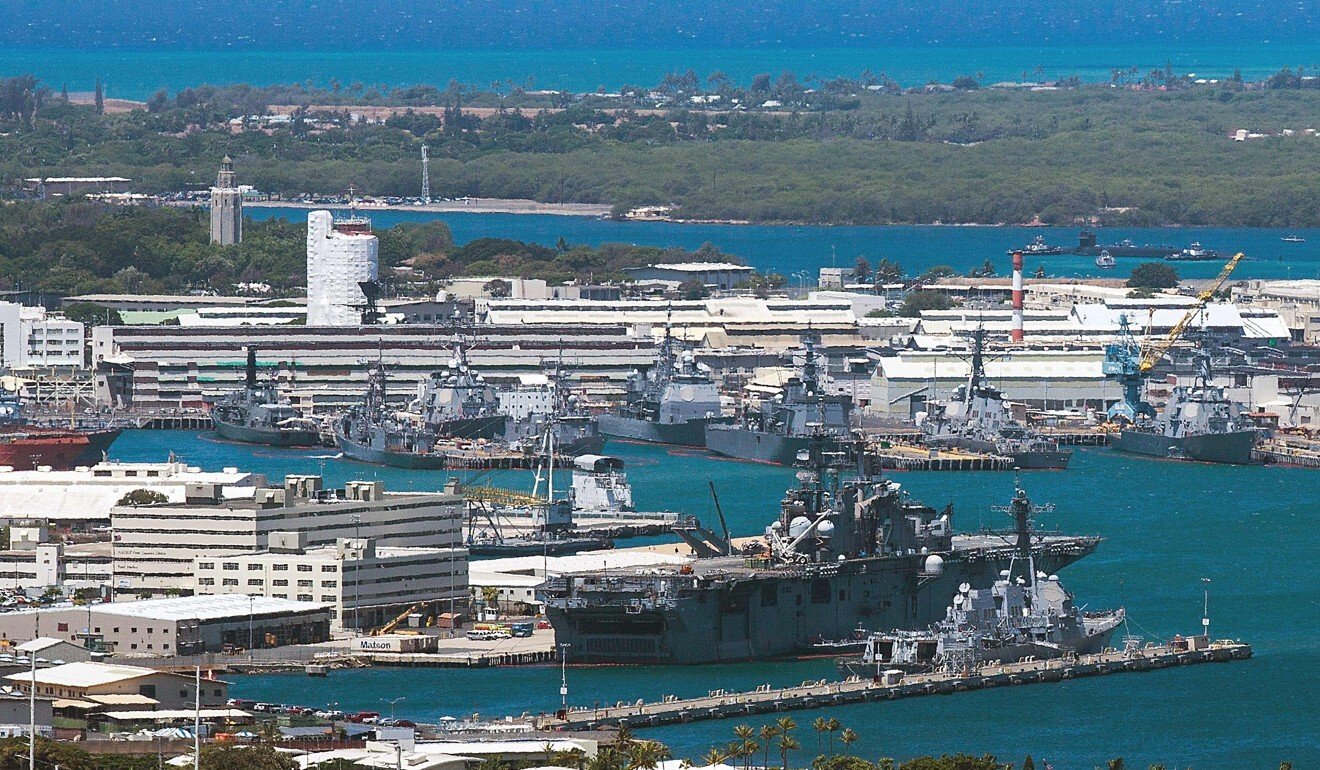
Hawaii talks a chance for Mike Pompeo and Yang Jiechi to ‘draw red lines in the sand’
- Meeting of top diplomats on Wednesday comes as relations between Beijing and Washington are at their lowest point in decades
- Observers are not optimistic there will be any real breakthroughs, but say it could help ‘avoid a sharp turn for the worse’
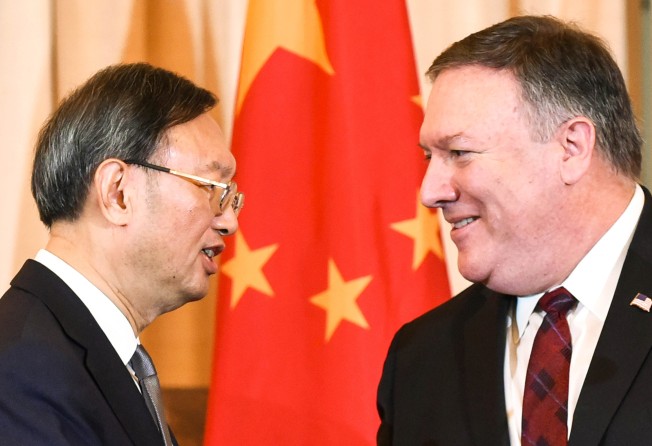
With relations between Beijing and Washington at their lowest ebb in decades, all eyes are on a meeting of top diplomats in Hawaii that observers say will be a chance to “draw red lines in the sand”.
There is little doubt that the talks between China’s top diplomat Yang Jiechi and US Secretary of State Mike Pompeo on Wednesday – their first meeting since August – are aimed at de-escalating tensions ahead of the US presidential election. But few details have been given, including why it was hastily arranged in the middle of a global health crisis.
Neither side has publicly confirmed the face-to-face meeting at Hickam Air Force Base will even take place, while observers and people familiar with the arrangements have given contradictory versions of which side initiated the rare face-to-face talks amid the pandemic.
Under the watch of Chinese President Xi Jinping and his US counterpart Donald Trump, relations have taken a precipitous slide – some say towards a new cold war – since the coronavirus was first discovered in the Chinese city of Wuhan late last year.

The two sides have engaged in a blame game over the deadly virus, but they have also sparred over other issues – Beijing’s plan to impose a controversial national security law in Hong Kong, the South China Sea, Taiwan and Xinjiang, the protracted trade war and technology.
At odds on almost everything – and as they face unprecedented challenges from the coronavirus fallout – the meeting is an opportunity for a candid, closed-door discussion.
“There is a great need for face-to-face communication amid all the microphone diplomacy and rising tension between the two countries,” said Ruan Zongze, a senior fellow at the China Institute of International Studies, a government-linked think tank in Beijing.
As for the meeting location, Hawaii was likely the most convenient option for both sides, according to Zhu Feng, a US specialist at Nanjing University. He said the mainland of either country may not have been a good option for Yang, a Politburo member, or Pompeo, given the increasingly adversarial relations.
Hawaii has also been least affected by the coronavirus, which continues to ravage many parts of the US with infections now exceeding 2 million, according to Yun Sun, a senior fellow at the Washington-based Stimson Centre.
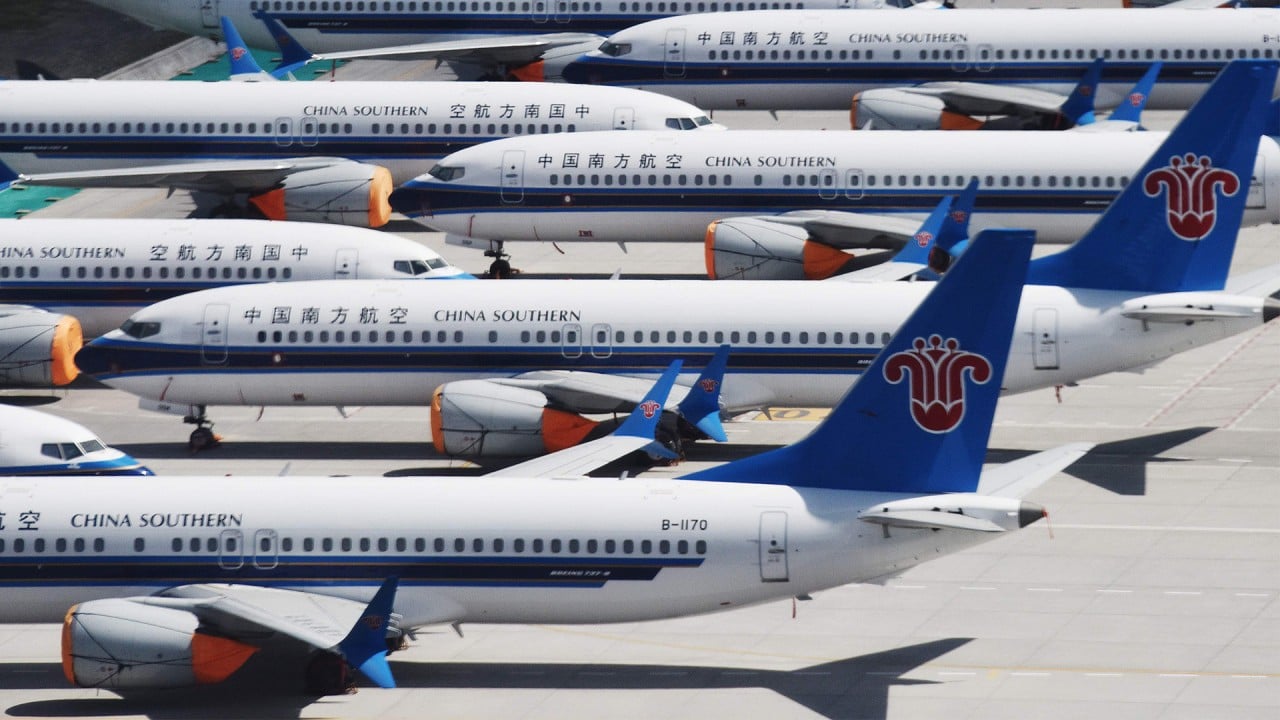
01:39
Trump administration bans Chinese passenger airlines from flying to US destinations
Ahead of the talks, aviation regulators of both countries have allowed each other’s airlines to add flights in the US-China route, stepping back from their stand-off over restrictions on airlines because of the pandemic. The US Commerce Department also signed off a rule change on Monday to allow US tech companies to work with troubled Chinese telecoms giant Huawei Technologies on setting standards for next-generation 5G networks.
But there are still plenty of signs that ties are badly strained, and Beijing’s feud with the Trump administration has become personal amid the pandemic.
Since early February, China’s state-controlled media has been attacking US officials, especially Trump’s top diplomat Pompeo – describing him as “evil” and “the public enemy of humanity” over his repeated use of the term “Wuhan virus” and criticism of the Chinese political system and leadership.
“In light of his recent rhetoric and actions Pompeo is not exactly the best messenger needed to bring about reconciliation,” said Gal Luft, co-director of the Institute for the Analysis of Global Security, another Washington-based think tank.
“There is therefore little hope for any substantive outcome in this meeting other than an opportunity for the two sides to put their views and intentions on the record and draw red lines in the sand. At best we can hope to avoid a sharp turn for the worse ahead of the US elections,” he said.
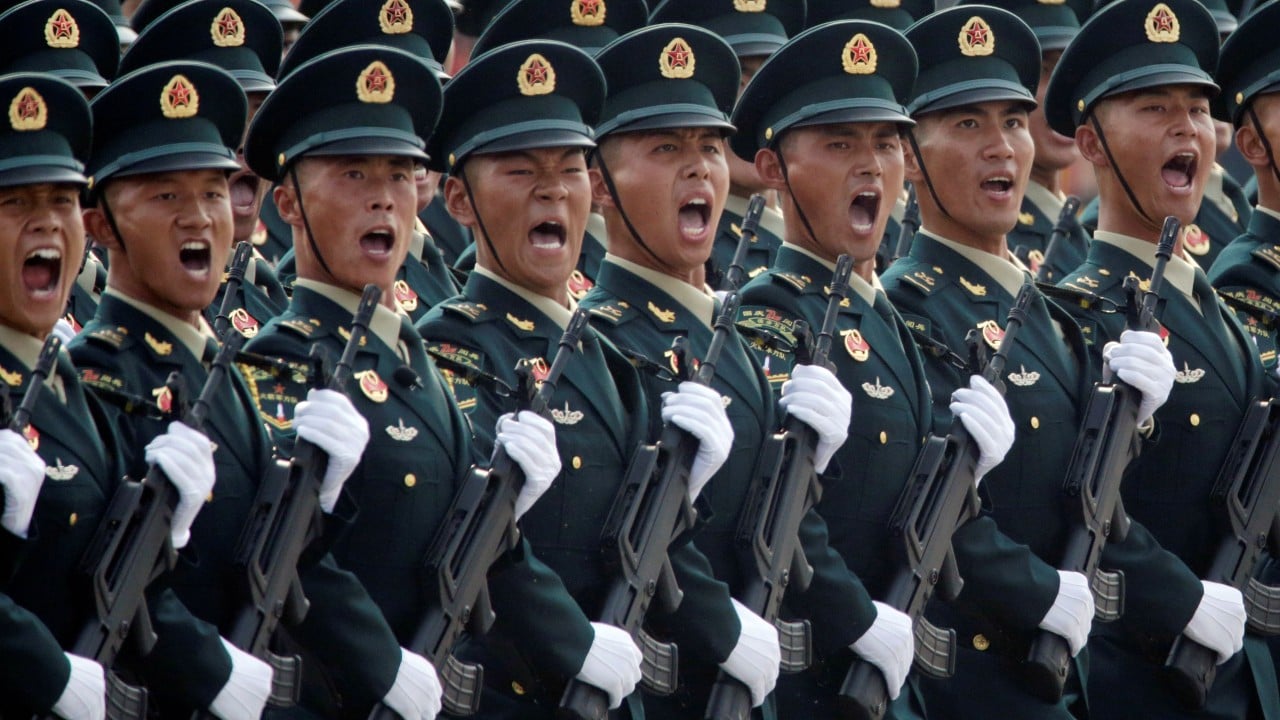
04:12
Are Xi Jinping’s China and Donald Trump’s US destined for armed conflict?
Shi Yinhong, an international relations expert at Beijing’s Renmin University, agreed. “If Trump really wanted to mend ties with China, he wouldn’t have sent Pompeo,” he said.
In contrast, Yang, a former foreign minister and ambassador to the US, has been called on to repair relations in the past. But he has had challenging moments dealing with the Trump administration. Yang’s first visit to the US to meet Trump in 2016, soon after he was elected, was unsuccessful – he did not manage to meet the president-elect – while his last talks with Pompeo in New York in August did not go well either.
Many observers were not optimistic about the meeting or the prospects for US-China relations in the lead-up to the presidential election in November, with the embattled Trump likely to play the China card to revive his campaign.
Denny Roy, a senior fellow at the East-West Centre in Hawaii, believed China needed the meeting more than the US, as Beijing faces an economic slowdown as well as strategic crises in the region.
“There will be little if any room for convergence of views on any of these issues. The best possibility for a small breakthrough will be in bilateral economic relations,” he said. “China also lost prestige and caused an acceleration in calls for economic decoupling as a result of its actions during the pandemic.”
He said while the Trump administration had positioned itself to use China-bashing as a campaign tactic, “Trump would likely still prefer the chance to claim that he got America a win in its relations with China right before the election”.
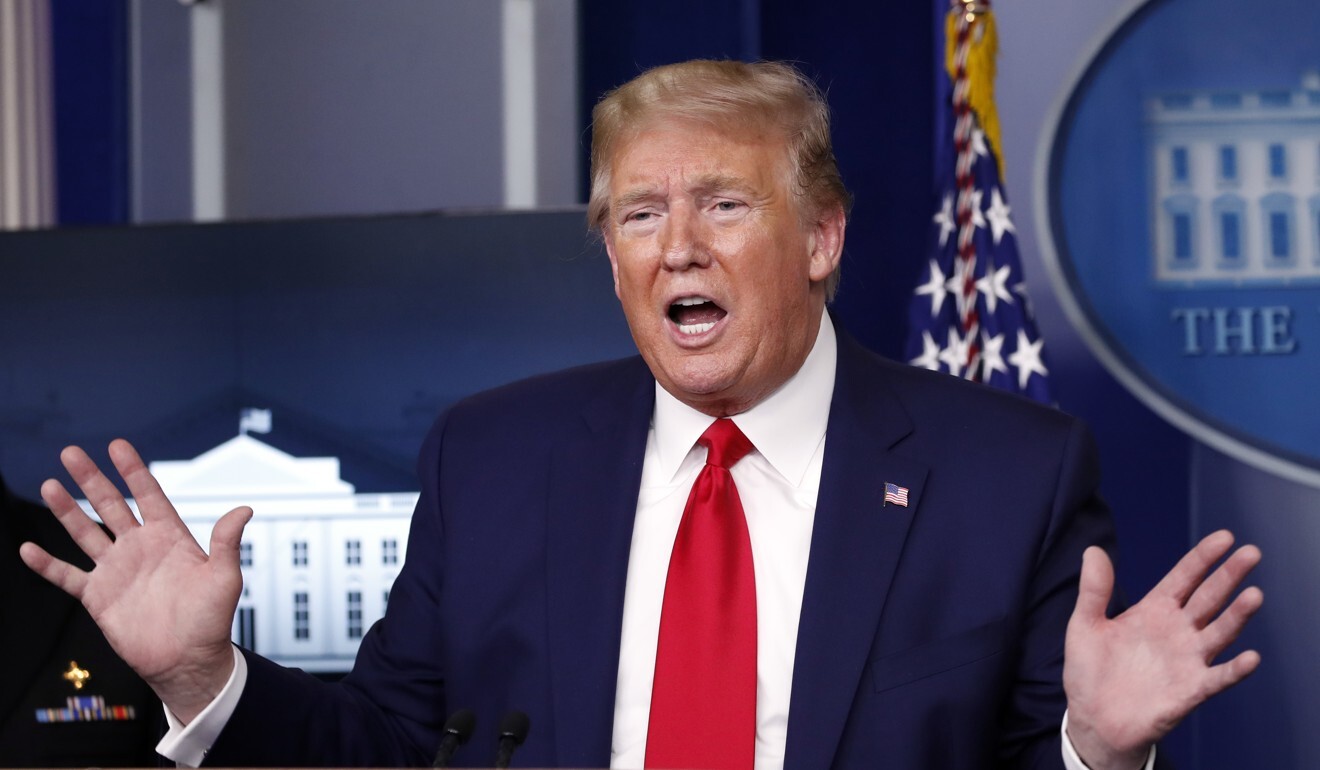
Luft said Pompeo was unlikely to take a conciliatory approach. “To the contrary, his goal is to disabuse China of the notion that the US is a crippled power and that it intends to withdraw from global affairs. His message will be: don’t give us a reason to prove to you we are still the superpower we have always been,” he said.
George Magnus, an associate at Oxford University’s China Centre, also said he did not expect anything more than window dressing to emerge from the meeting.
“The upside might be an agreement to keep talking, possibly at presidential level, later in the year. Even then, though, this will be about expedience, not real diplomatic breakthroughs,” he said.
Additional reporting by Jun Mai, Wendy Wu, Catherine Wong and Sarah Zheng